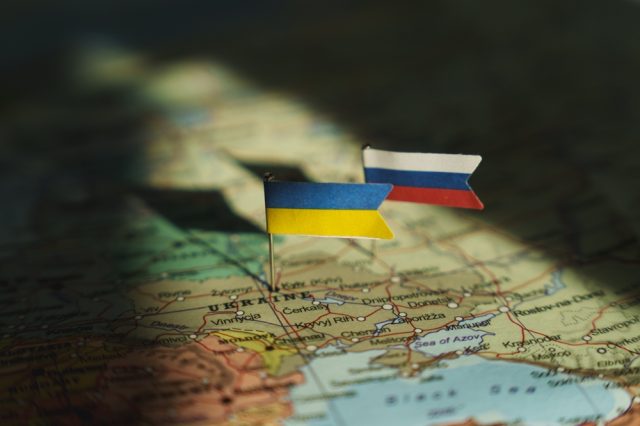
Who has the right to participate in the peace negotiations between Ukraine and Russia? Who has the ability and political determination to decide? But above all, who gets to decide? These are questions that are swirling beneath the news and information coming in during these weeks from the different battlefields on Ukrainian territory and from the chancelleries – not only European – engaged in imagining or designing the future of this area.
AN ANNOUNCED NEGOTIATION
There is no doubt that the recent US elections and the inauguration of the new President have weighed heavily on the course of the conflict in recent months. With the Tycoon stating that he was ready and fully capable of resolving the conflict in a matter of hours, every metre gained or lost was fought with the idea of gaining influence at the negotiating table. Trump’s initial announcement was then scaled down, admitting that the resolution of this conflict is not achievable in a few days, probably not even in a few weeks. It is, all analysts seem to agree, a slow filing work even just to get to the negotiating table.
THE KREMLIN’S POSITION
The road to the negotiating table is certainly tortuous. Especially since both sides aim to negotiate from a position of strength. There are, however, two elements to take into consideration at this juncture, and both of them can be traced back to the positions taken by Kremlin spokesman Dmitry Peskov. Firstly, the admission that, although contacts with Ukraine for a negotiating table have not been initiated, they are being planned. A linguistic subtlety that denotes not so much an action as a predisposition to talk, even in the face of Trump’s statements. In fact, the Tycoon had announced that he was planning meetings and talks with the various parties, also acknowledging that contacts between Russia and Ukraine were proceeding ‘rather well’. An admission that Moscow might have preferred not to reveal. The second topic concerns the interlocutors. For Russia, in fact, Ukrainian President Volodymyr Zelensky would not be legitimate to represent his country in negotiations. It is also Peskov who has recently reminded us that in Ukraine regular elections must be held before indicating an interlocutor. For the Kremlin, in fact, without this step there would be no minimum terms for sitting at any negotiating table. Regarding the elections to be held in Ukraine, there has also been some pushback from the United States. In particular with Trump’s representative for Ukraine, Keith Kellogg, who stated in a recent interview that the holding of regular elections in Ukraine is also a fixed point for the US. For the US administration in particular, elections in Kiev should take place if a truce in the conflict is reached. The issue of democratic representation in Ukraine is one that will certainly be decisive in reaching a truce agreement. Indeed, it cannot be forgotten that regular elections in Kiev were postponed due to the martial law imposed after the Russian invasion. At the same time, for Putin, President Zelensky would be illegitimate and the elections would be part of the ‘denazification’ process that would drive the special operation.
EUROPE AND THE NEGOTIATION
As for the European position in regard to the negotiations, it’s that it does not want to abandon Ukraine to a peace that would drastically reduce its territory. The EU High Representative for Foreign Affairs, Kaja Kallas, in her speech to the EU Ambassadors’ Conference, called on member states to unity in supporting Ukraine and sanctioning Russia and the funds that feed its war machine. In Kallas’ speech, Russia remains a threat to Europe. Support for Ukraine, also by obtaining favourable positions at the negotiating table, can be for the EU the basis for a new period of stability, which reduces the chances of conflict extension.



 Subscribe
Subscribe